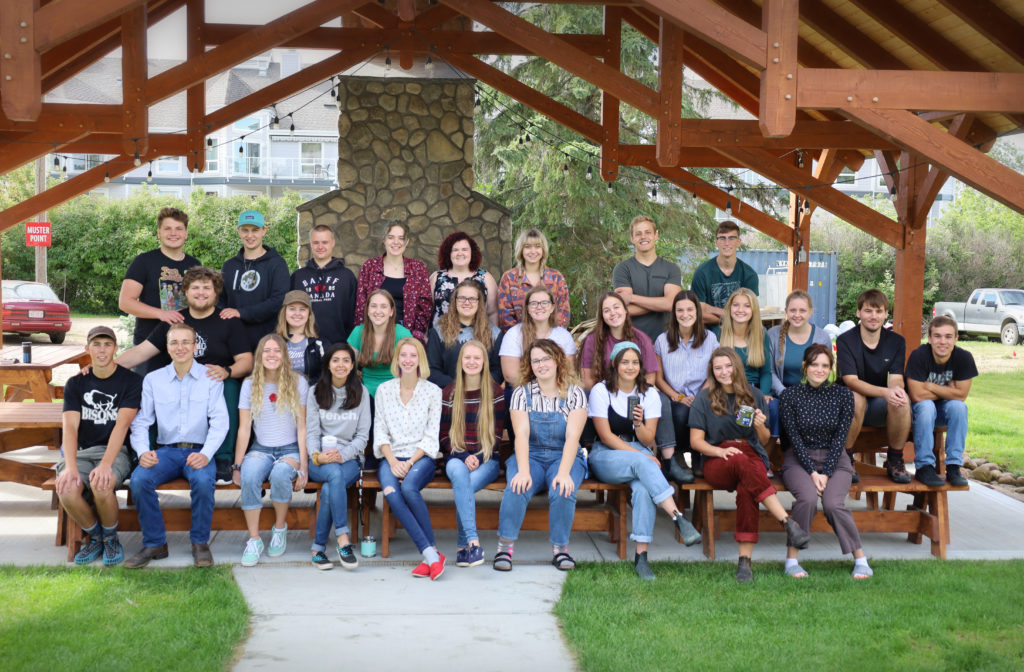Addressing The Clergy Supply Crisis

Given the increasing shortage of ordained pastors available for call, now is the time when many churches will need to take the initiative to enlist one or two (or three) active members to be equipped and eventually called to serve their own congregation.
Now before you dismiss this strategy as totally impractical, first consider the difficulties involved in finding and calling a full-time ordained pastor in the next few years. Then I will describe one possible scenario where a congregation chooses to equip and call one or two (or three) of their own members to serve in a pastoral role.
So first, to answer the question: just how difficult could it be in 2024, or 2025, to fill your congregation’s pastoral vacancy? Glad you asked. The answer, in part, comes down to basic math. There are simply too many vacancies for too few available pastors. And the small number of pastors who are looking for a call have too many options. This means applicants for your vacancy will often be comparing your church with other vacant churches where they are also interviewing.
However, it is not just about the quantity of available pastors, it’s often about the quality. Many of the pastors out “looking” are not vetted; and might not be qualified to serve your church. This is especially true in the LCMC, where their online “call packet” information makes it clear that vetting your applicants is entirely your congregation’s responsibility.
One more challenge related to the current clergy supply shortage: it will only become more severe in the coming years. Projections are that there will be twice as many pastors retiring ten years from now than are retiring in 2024.
So now for a hypothetical example of how a congregation—Grace Lutheran—is addressing its pastoral vacancy. It involves the following steps:
1. Once the congregation’s retiring pastor—who served Grace for 15 years—departed, the Church Council organized a transition team to consider how to move forward when the larger church is dealing with an unprecedented clergy shortage. That transition team, after meeting for a couple of months, recommends that the Council pursue a two-prong strategy to address their vacancy. First, they recommend organizing a call committee to “test the waters’ regarding whether the “right” pastor is out there; whether to serve as an interim or more “permanent” pastor. The second recommendation is that, while the call committee begins this search, the Council begin a discernment process as to whether one or two (or three) active members can be convinced and recruited to take at least one seminary online course. This initial course would be a way for these members to consider a seminary education and, hopefully, eventual ordination. The cost of this seminary course would be covered by the congregation.
2. The Council’s first challenge is, of course, one of discernment. In other words, identifying the right members to approach regarding this opportunity. Prayer would play a large role as the Council moves forward. Those considered would be active members who are already known by name by the majority of church members. Just as important, they would be members who are recognized as having proven ministry gifts.
3. Given the long-term scope of this strategy, those approached would ideally be 60 years of age or younger. That way they would potentially be able to serve the congregation in a pastoral role for years to come.
4. Those approached and recruited for this ministry opportunity would hopefully have a college degree. This would make them immediately able to pursue a seminary education without additional schooling.
5. These future pastoral ministers could either be currently working full-time (after all it’s only one initial online course) or part-time; or be active retired; or be a nesting-stage or empty-nester parent not working outside the home; or currently be serving the church as support staff.
6. Which initial seminary course would they be taking? Negotiable. I would recommend either Biblical studies, preaching, or Lutheran Confessions.
7. Who would these “recruits” be accountable to as they begin this online course? Either the Church Council or a mentoring team of two to four lay leaders appointed by the Council.
8. What would the financial cost be to the congregation? Minimal. Initially, just the cost of the online seminary course(s). However if these members are also recruited to serve in some ministerial role while taking this course, they should be given a stipend as compensation.
I have, since 2019, provided some level of assistance to 38 different congregations dealing with a pastoral vacancy. Most of these congregations initially approached their vacancy with the assumption that finding and calling a new pastor is essentially the same challenge it was ten to twenty years ago.
Nothing could be further from the truth. The current shortage of qualified pastors available for call is unprecedented in my lifetime. (And I’m seventy-two!)
This crisis is not something that can be entirely addressed by top-down denominational strategies. Not only are such top-down strategies inadequate in 2024; they will be increasingly insufficient as long as the number of available pastors continues to plummet in the coming years.
So if top-down, national-church initiatives prove inadequate, what can the local church dealing with a vacancy possibly do? Take ownership in addressing your long-term need for pastoral leadership. In other words, “raise up” competent and gifted future pastoral leaders from among your own congregational members.
And if your church is, or soon will be facing a pastoral vacancy, where do you begin? By doing four things:
1. Read this article a second time.
2. Start praying; asking God for guidance when it comes to identifying active members of your church who have the personal integrity and the proven ministry gifts to consider becoming a pastor.
3. Approach your congregational leaders about considering some version of the above ministry strategy.
4. And if you initially need to talk with someone who is not a part of your congregation about how to proceed, email me, Don Brandt, at [email protected].
For an additional written resource related to this ministry challenge you can click on the link below.
Grace and peace,
Pastor Don Brandt
Lutheran CORE’s Congregational Lay-leadership Initiative (CLI)
“How Your Congregation Can Identify, Enlist and Train Part-time Lay Ministers”















